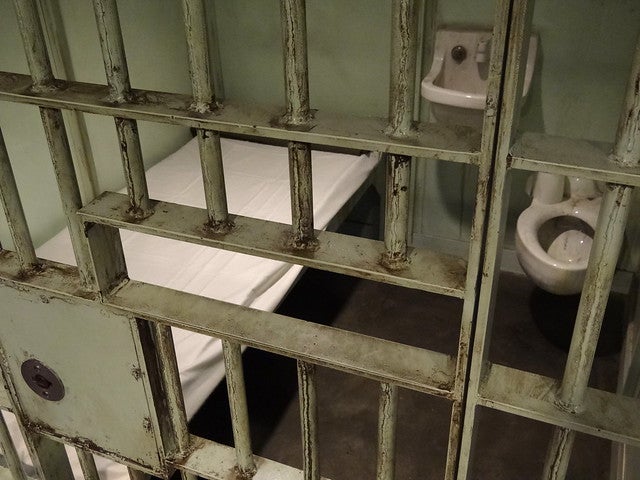A bill approved by Wisconsin lawmakers would loosen limits on the possessions Wisconsin inmates can have.
Right now, Department of Corrections rules say Wisconsin inmates can’t keep most types of personal property in prison if one of those items is worth more than $75.
Rep. Paul Tittl, R-Manitowoc, says he authored legislation to change that after hearing a from a mother in late 2018 who sent a Bible that cost more than $100 to her incarcerated son.
News with a little more humanity
WPR’s “Wisconsin Today” newsletter keeps you connected to the state you love without feeling overwhelmed. No paywall. No agenda. No corporate filter.
The Department of Corrections wouldn’t let him keep it, because its cost exceeded the policy limit, according to testimony submitted to lawmakers.
Tittl said Wisconsin’s limit on personal property hasn’t kept up with rising costs.
“This is not about one person or about a Bible or anything like that,” Tittl said on the Assembly floor, adding that the department has since refunded the mother for the cost of the book. “It is about having our prisoners able to have something of personal value in there with them.”
The recently-approved bill would raise the limit on most types of personal property from $75 to $150.
It now heads to the governor’s desk, after being passed by the Senate in March and by the Assembly last week.
Two Assembly Democrats — Ryan Clancy and Darrin Madison of Milwaukee — voted against the proposal this month, saying it would not improve the lives of incarcerated Wisconsinites.
After Tittl unveiled his legislation, the Department of Corrections introduced its own administrative policy changes to increase monetary limits on inmates’ possessions.
Those changes were adopted as an emergency rule that has since expired. A proposed rule that would adopt the higher limits on a permanent basis is pending.
Part of the rule changes mirror Tittl’s bill by raising the limit on most types of personal property to $150. But the administrative changes would also go further by increasing the monetary limit on the value of electronics and musical instruments an inmate can have from $350 to $500.
“If you are intending to vote ‘yes’ on this in order to make conditions better in our jails and prisons, thank you for that intent,” Clancy said prior to the Assembly’s vote. “That is not what this would do. The permanent rule change is better.”
Tittl says lawmakers consulted with Department of Corrections when drafting the bill. Rule or not, he said, increasing the limit in law is significant.
“A rule is a rule is a rule,” Tittl said. “It’s good until somebody changes the rule. The statute takes a little bit more determination.”
David Murrell, an activist with Ex-Incarcerated People Organizing of Wisconsin, says a personal property limit of $150 is better than a limit of $75. But he questioned why the Department of Corrections needs to keep such limits in place to begin with.
The broader problem, he said, is that incarcerated people can’t afford to purchase many types of items while earning sub-minimum wage.
“The real issue is most of the men and women in prison can’t afford $150 for anything,” said Murrell, who used to be incarcerated. “They get paid pennies on the dollar.”
Wisconsin prisoners working in state-owned correctional industries earn an average of $0.97 an hour, according to a 2022 report from the American Civil Liberties Union and the University of Chicago Law School Global Human Rights Clinic. Those working in non-industry jobs earned between and $0.12 an $0.42 an hour, the report found.
Wisconsin’s Department of Corrections did not respond Friday to a request for comment about the bill.
Clancy and Madison are among the Democrats backing a sweeping, 17-bill package that was introduced last year to improve conditions within Wisconsin’s jails and prisons.
Among other changes, the proposals would limit solitary confinement, require that cells be kept at tolerable temperatures and require working Wisconsin inmates to be paid at least $2.33 an hour.
Wisconsin Public Radio, © Copyright 2026, Board of Regents of the University of Wisconsin System and Wisconsin Educational Communications Board.







